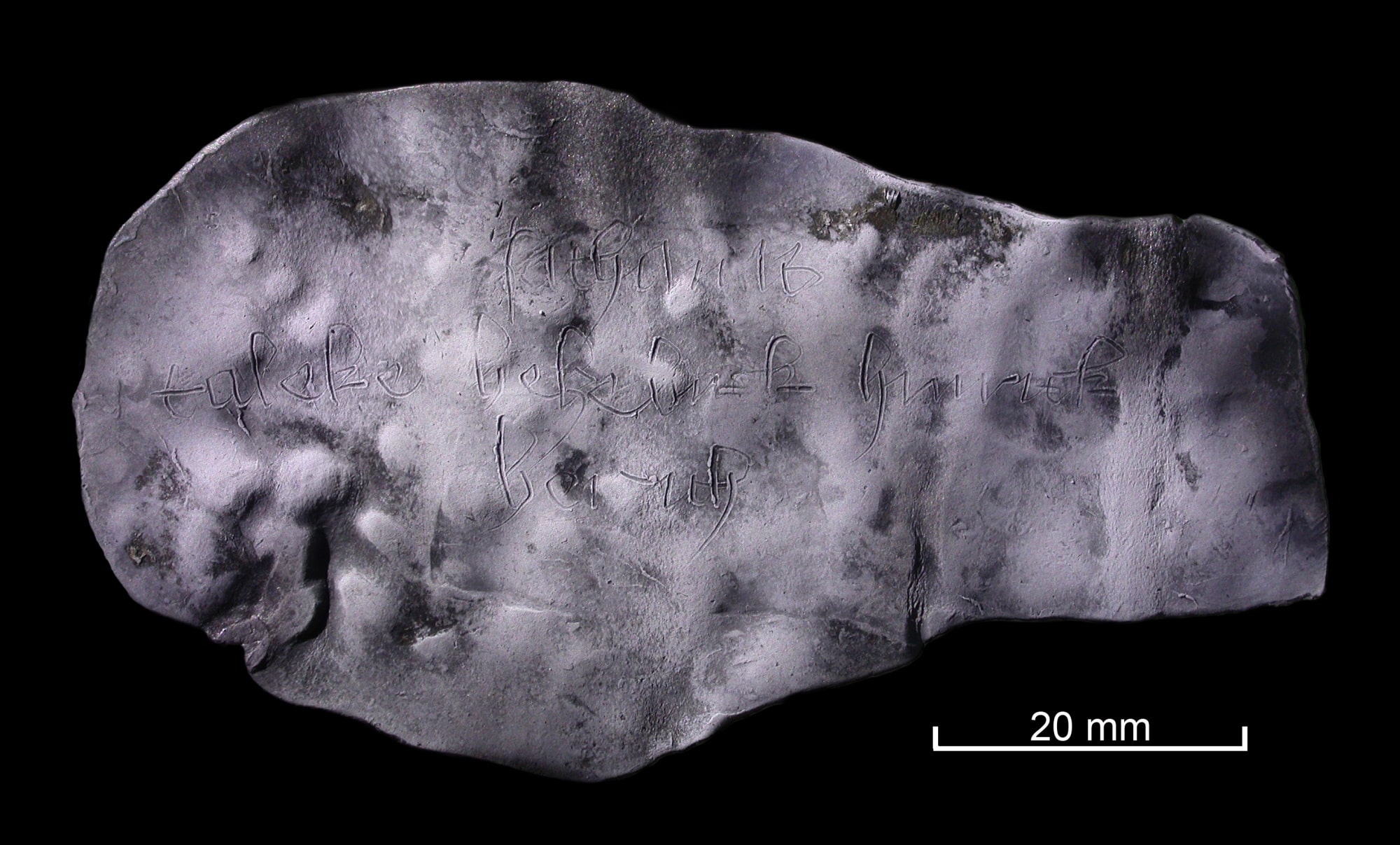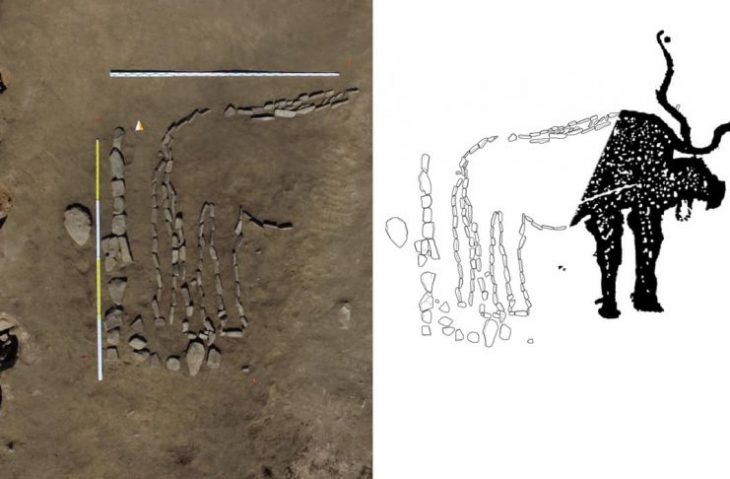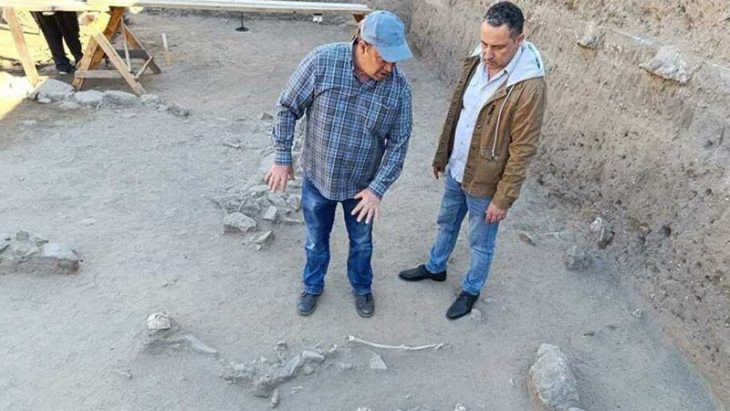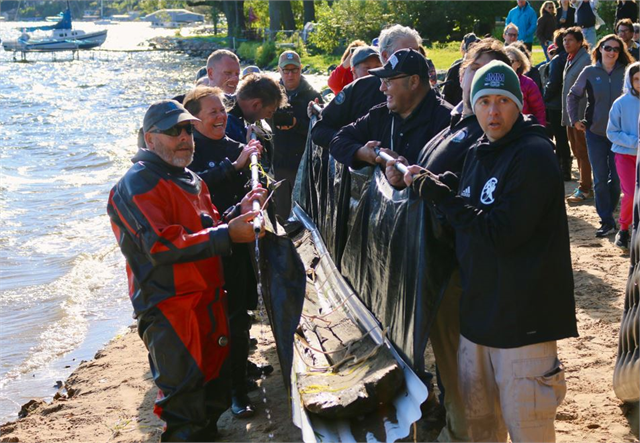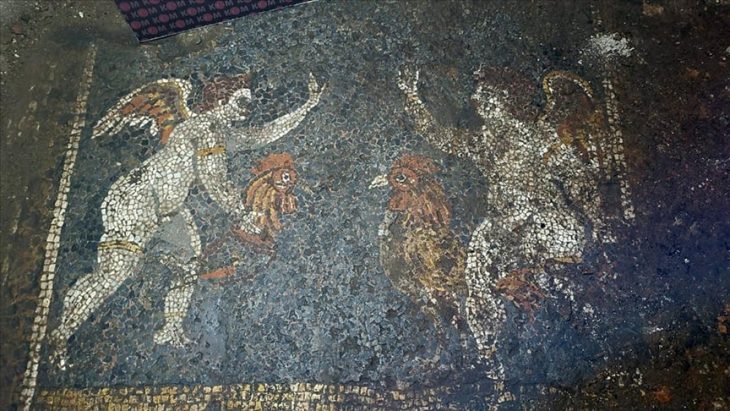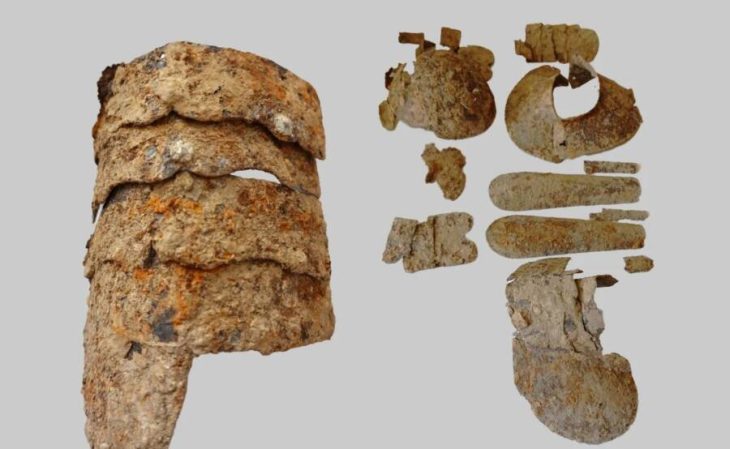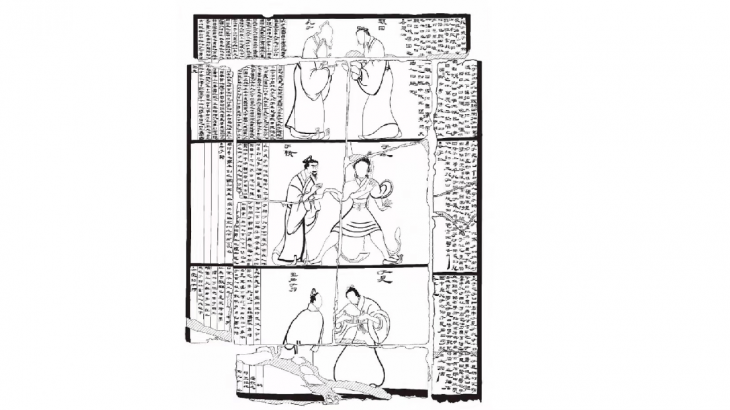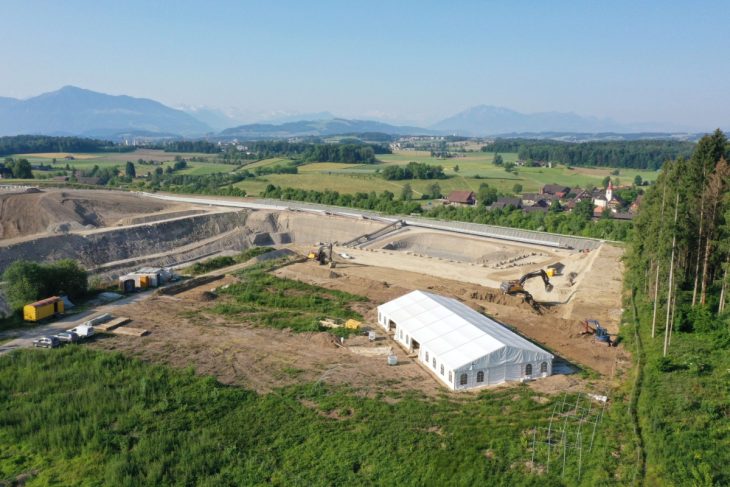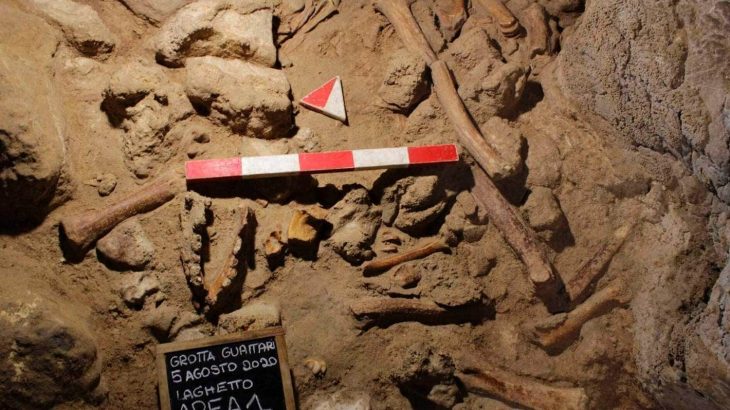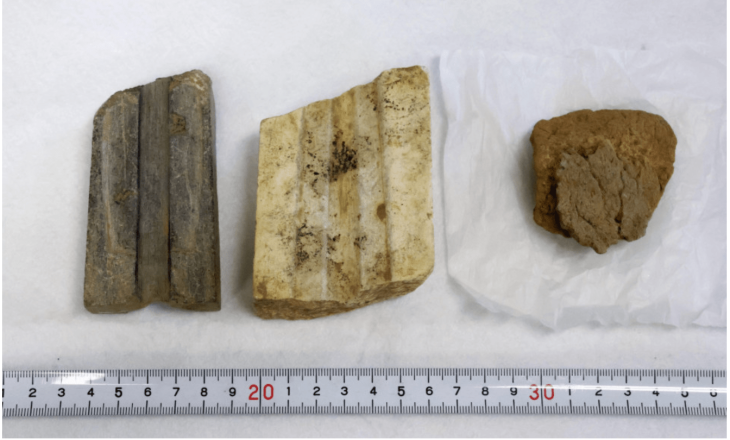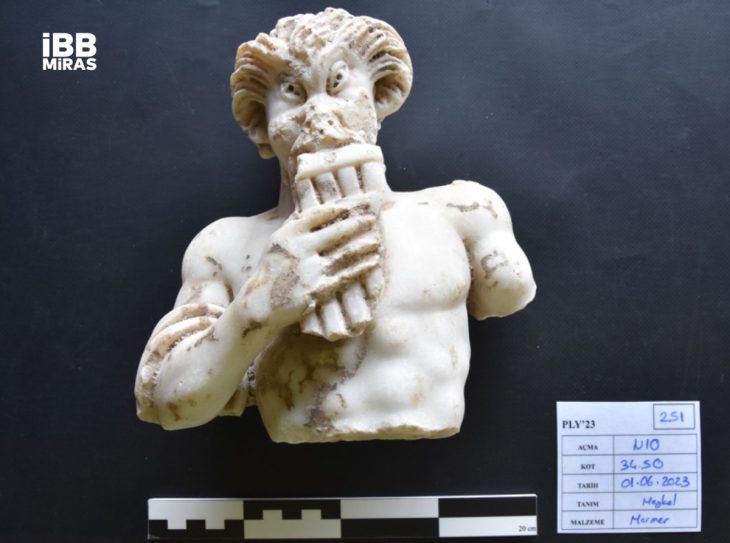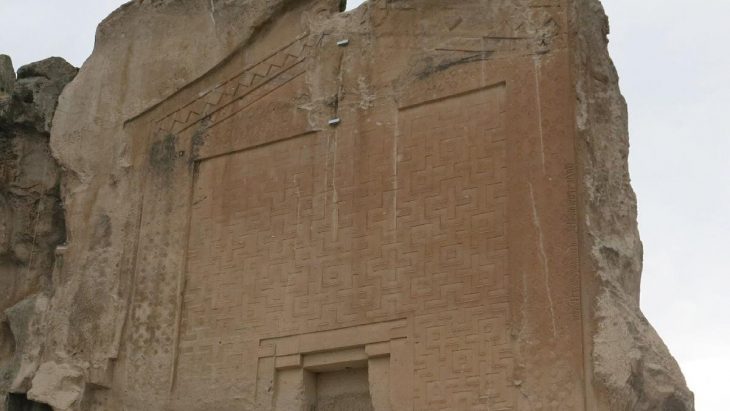In the city of Rostock on Germany’s northern coast, archaeologists found a lead curse tablet invoking Satan and two other devils in a 15th-century latrine. The plaque was unearthed during work on the construction site for the extension of Rostock City Hall.
The tablet with a curse spell lay deep in the ground for centuries. When unrolled, the words “sathanas taleke belzebuk hinrik berith” were legible. It was about a woman called Taleke and a certain Hinrik (Heinrich), who obviously had to deal with the devils Satan, Beelzebub and Berith.
The inscription is a list of names written in Gothic tiny script. The devils invoked are Satan, Beelzebub, and Berith (also known as Baʿal Berith, a Canaanite deity equated with Beelzebub in the Rabbinic tradition). The apparent targets of the curse are Taleke and Hinrik.
The discovery is especially unique because curse tablets are mostly known from ancient times, around 800 B.C. until 600 A.D., in Greek and Roman regions, excavation leader Jörg Ansorge said in the release. Similar finds from the same era are mostly unknown.
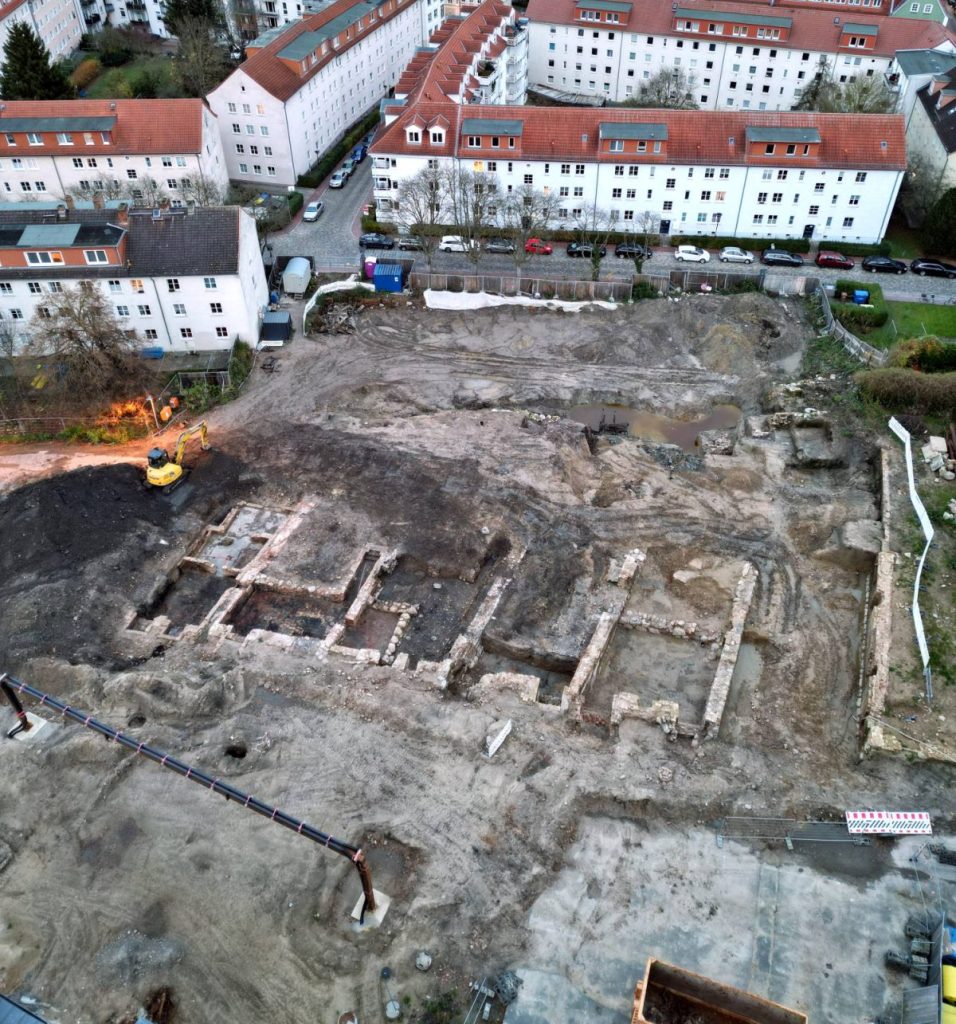
Early in the 7th century marked the end of the lead curse tablet era. Curses from later periods have been discovered, but they were in distinct forms. Apparently, the ancient tradition was still in practice in medieval Rostock at least once.
“Our discovery, on the other hand, can be dated to the 15th century. It’s really a very special find.” According to Ansorge, similar finds from the Middle Ages were unknown.
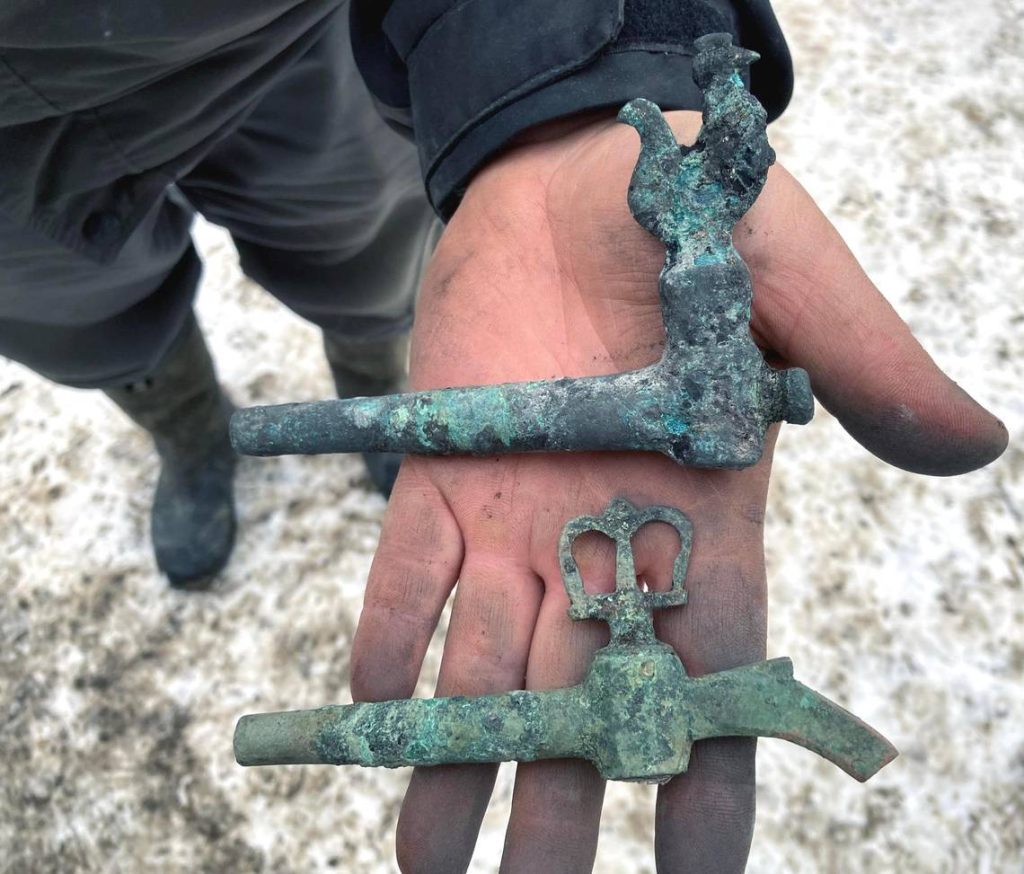
The tablet was discovered at the bottom of a latrine at the end of a plot of land. Even in ancient times, “curse tablets” were placed where they were difficult or impossible to find.
According to a Dec. 12 news release from KOE, a real estate company in Rostock involved in the excavations, the team of archaeologists excavated six medieval houses and multiple cellars at the town hall site. Experts discovered traces of inhabitants’ crafts and living, a stone staircase, and various bronze taps from the 16th and 17th centuries within the cellars and houses.
Cover Photo: Archaeology in Mecklenburg-Western Pomerania (AIM-V)

